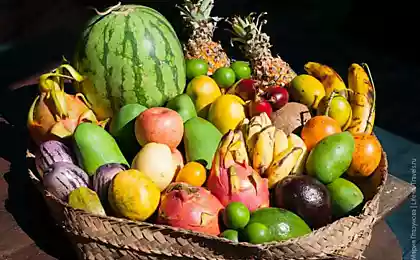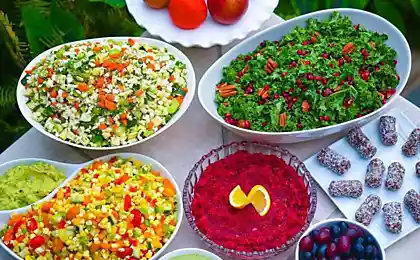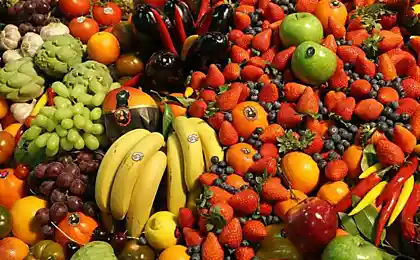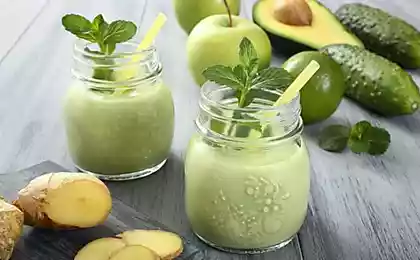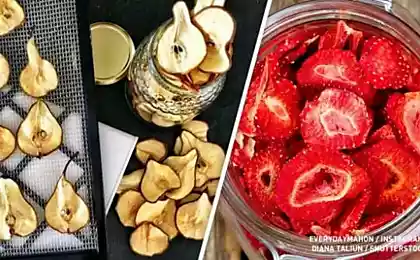2924
Fruits that you may have never tried
There are many interesting fruits of which we do not even know.
Take a look at some of them.
25. Fruit baobab
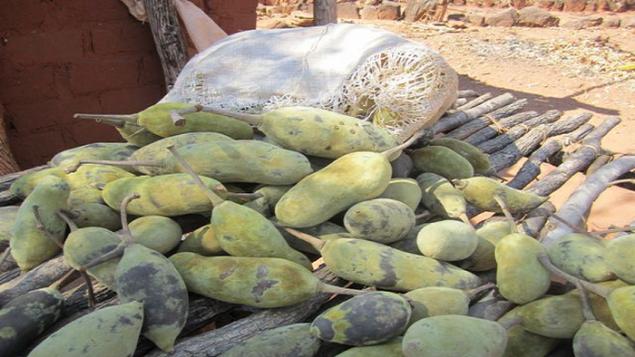
This fruit resembles a coconut and contains milk, twice as rich in calcium, is also rich in antioxidants, potassium, and vitamin C. It contains 6 times more, Sanchez in orange. Usually they do not sell entirely due to a very hard shell, but this fruit can be bought as smussi or in muesli bars. Earlier this fruit has been banned in the UK and the US, but now you can find it on the shelves.
24. boysenberry.
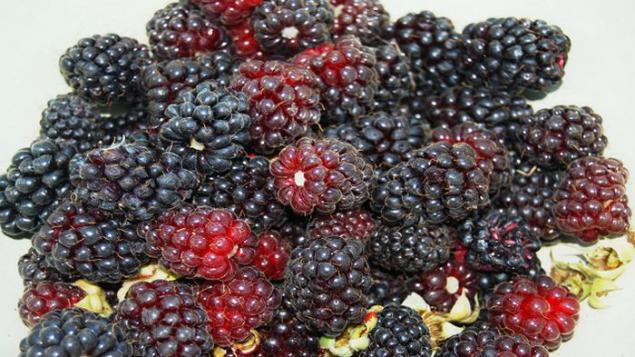
This berry - something between a blackberry and raspberry. It was the result of the experiment Rudolph Boysen, who was involved in crossing the 1920s. Berry has a very rich taste, and she has a lot of fans.
23. The Breadfruit.
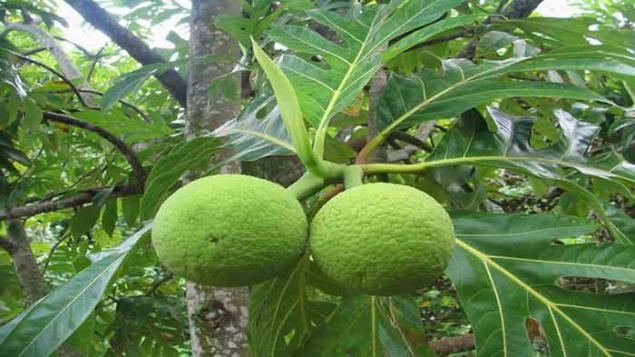
Usually you can find it in the Pacific Islands. It is eaten cooked separately or together with other fruits. Also, it can be mixed with coconut milk, butter and meat. It has a lot of carbohydrates, and it is 70% water. It is also very rich in vitamin C, thiamine and potassium.
22. cherimoya.
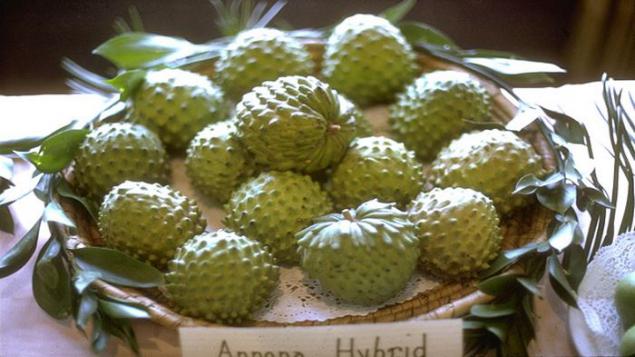
For the first time this fruit presented in 1871 in California, and then it was brought to Italy and Portugal. The taste of the fruit can vary: some species are similar in taste to pineapple, pear or other on the apple. When the peel turns brown, it can not be there. It contains 15% sugar and vitamin C. However, there can not be damaged or seeds, as they are poisonous, and the digestion may lead to paralysis.
21. Fruit trees aguahe.
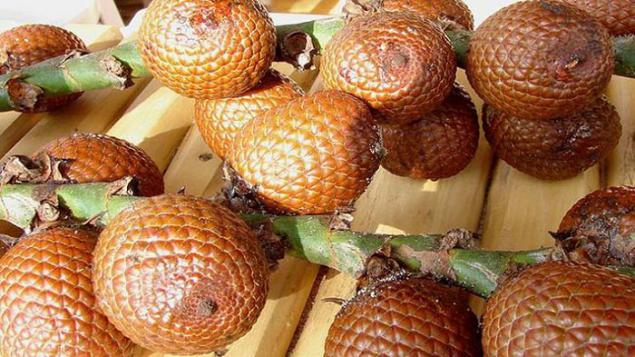
This exotic fruit is covered with red skinned to be cleaned. Grows near swamps and other wet areas of South America. This is a potential source of vitamin A, C, and can also be used to treat burns. Some make him an excellent wine.
20. Monstera delitsioza
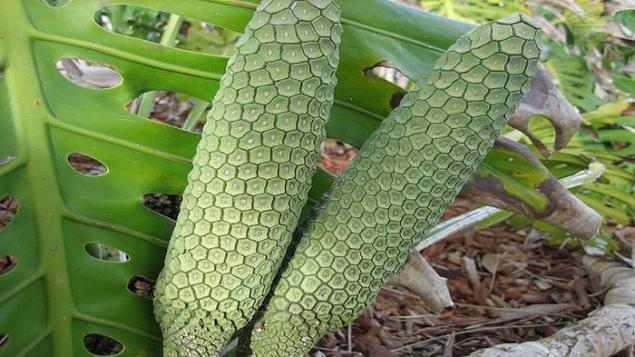
The flesh of this fruit is like a pineapple. Carefully peel off. Fruit takes a year to complete maturation. If it is not ripe, it can be dangerous to humans. This fruit is native to Central America, and looks like an ear of corn, although it is a fruit. Tastes like banana and pineapple together and contains a lot of vitamin C. It is also a source of energy and vitality.
19. cupuaçu.
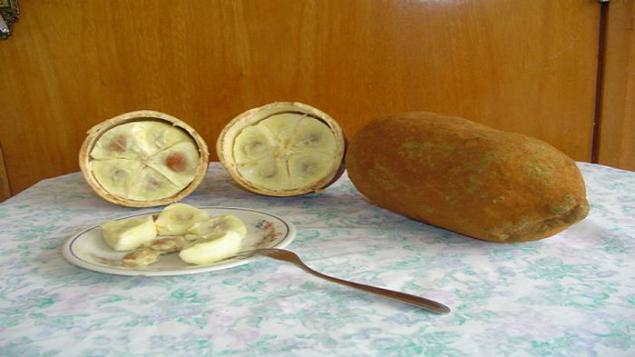
Grows in the Amazon. The flesh of this fruit is used for desserts, as to taste it resembles chocolate pineapple, as it is quite fragrant fruit. Many believe it superfruits because it contains vitamins B1, B2, B3, fatty and amino acids, nine antioxidants, calcium, selenium, vitamin A and C.
18. Pepino.
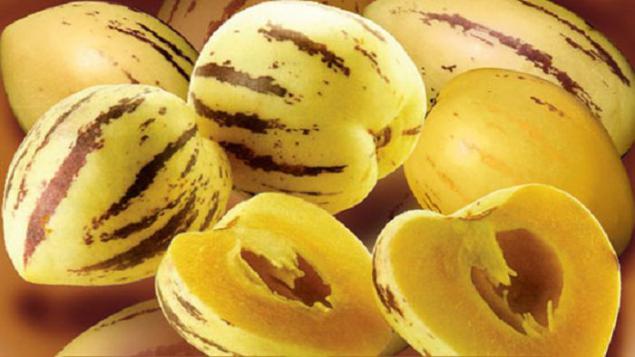
It's a cross between a pear and watermelon. Although it is a sweet fruit, the yoke is often compared with tomatoes or eggplant. Is home to South Africa, and even export to New Zealand and Turkey. Very useful in patients with diabetes, heart problems and blood pressure. Regular consumption of this fruit will increase body tone.
17. Aki.
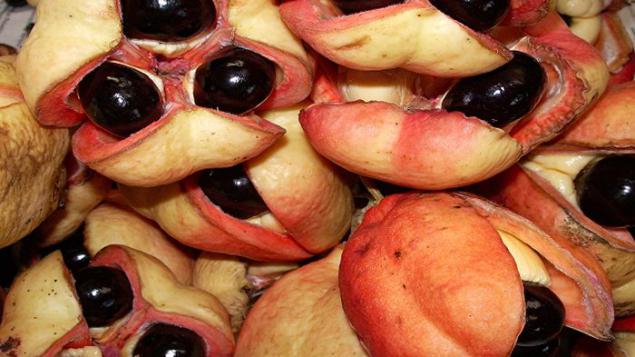
This fruit contains many fatty acids such as stearic, palmitic, linoleic, including oil Omega 6. It is a good substitute for oil omega-6, which is found in fish. It contains no saturated fats or cholesterol. The fruit is also rich in protein, complex carbohydrates, vitamins B and C, zinc, potassium, calcium and fiber.
16. physalis.
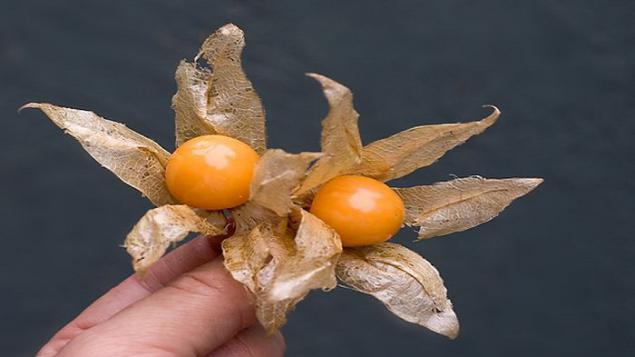
It is often considered to be the same species as the tomatoes because of the light acid taste. It can be eaten raw or in a dessert, salad dressings, jams, jellies, and it is made into dried fruit.
15. Jabuticaba.
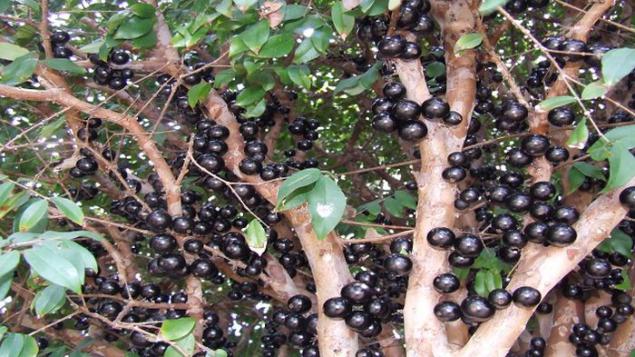
This fruit grows in South America and is similar to grapes. The taste it also reminds grapes, although depending on the maturity of the taste change. The best taste it gets on the ninth day after his thwarted.
14. African prickly cucumber.
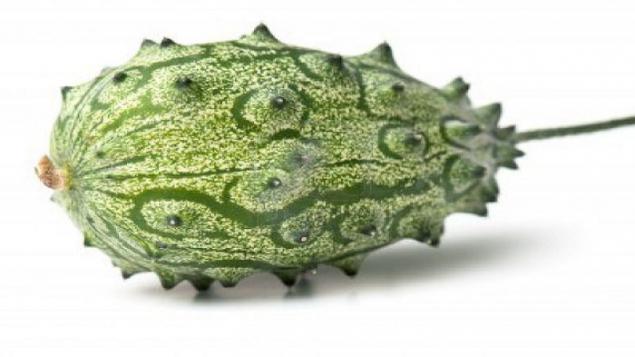
In the United States it is called the fruit "fish-hedgehog". Onzeleny inside, outside - yellow. On the palate, it resembles something between a cucumber and zucchini and contains vitamin C and fiber. It can have any degree of ripeness. Also from mature cucumbers make juice.
13. Magic fruit.
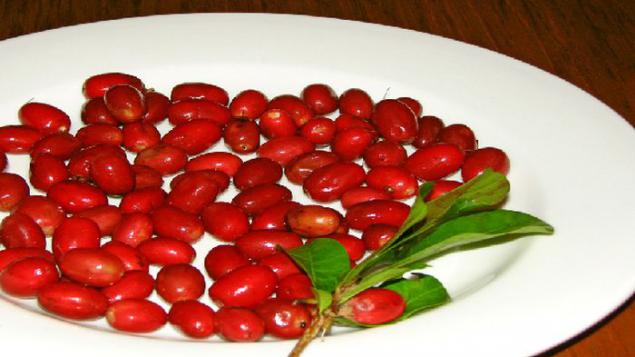
Magical fruit is known for its ability to make sweet sour dishes. This is due to the substance Miraculin. This is his feature makes it very useful for people who want to lose weight, or for those who are undergoing chemotherapy, as this substance is also able to withstand a metallic taste, side effects of chemotherapy.
12. Lansium parasiticum.
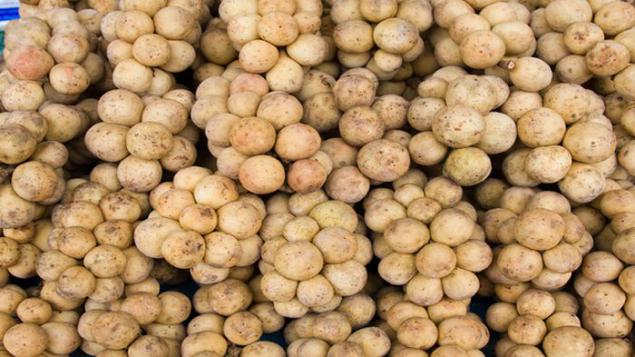
This ball-shaped fruit grows in South Asia, Bhutan and India, as it is found in Hawaii. Lansium parasiticum unripe sour taste when it ripens, it becomes sweet, something like a bitter-sweet grapefruit. This exotic fruit contains protein, carbohydrates, fiber, calcium, vitamin A, thiamin, riboflavin and ascorbic acid.
11. Rambutan.
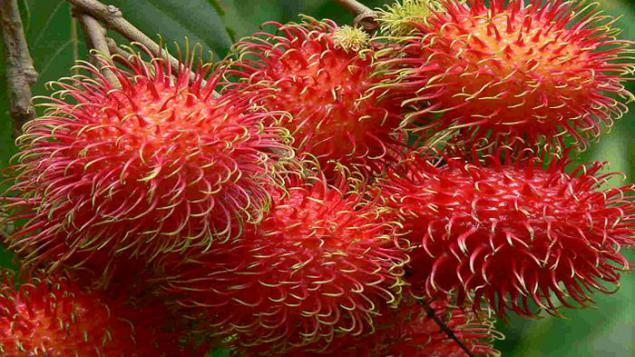
This strannovyglyadyaschy fruit outside like a fluffy strawberry, and inside looks like a lychee. Rambutan grows in the Philippines and has lots of nutrients.
10. Noni.
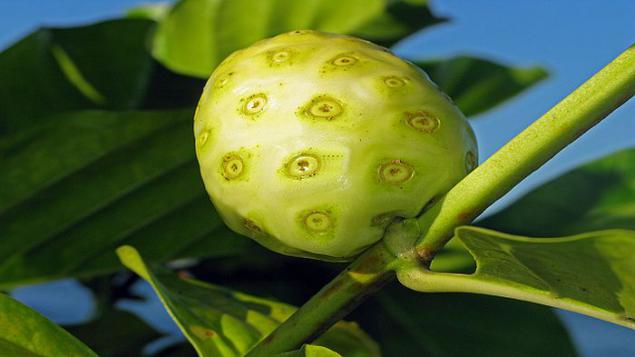
There was a time when noni was a huge demand in the market, as this fruit is very good for health. In countries such as the USA, Australia, the Philippines and other countries in Southeast Asia, this fruit is always in demand. It contains klechtatku, vitamin A, iron, calcium, and is one of the staple food of the local people. It can be stewed, eat raw, squeeze the juice, or use as a medicine.
9. Dragon Fruit.
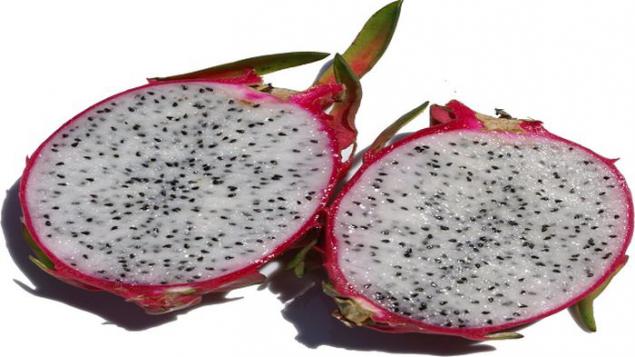
Dragon Fruit growing throughout Asia, North and South America. It strengthens the immune system and aids in digestion. It is also important that it reduces the level of glucose in the blood, which can help people with diabetes.
8. Javanese drain.
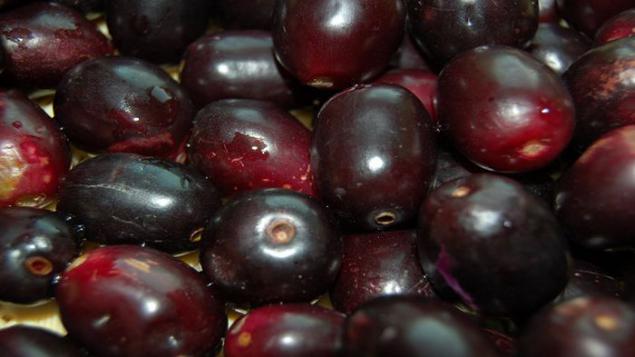
Javanese drain - a very popular fruit in the lower part of the Philippines. Tastes like something sweet, a little sour, and colors purple tongue. Used in Ayurveda for the control of diabetes, and in Chinese medicine to improve digestion.
7. Sursop.
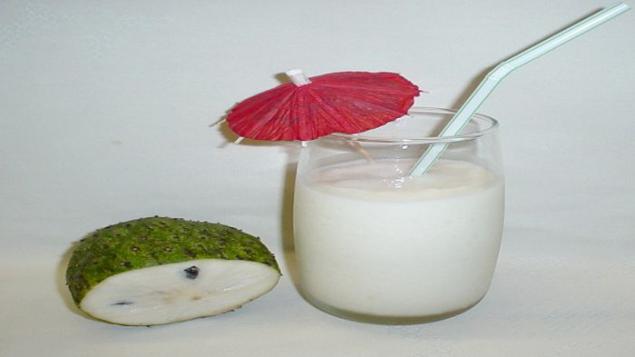
This fruit grows on broadleaf evergreen tree, native to Mexico, Cuba, Central America, the Caribbean and northern South America. It is rich in vitamins B, B2 and C. It is said that sursop can cure many diseases, even such as cancer, but it is quite a controversial statement, because scientists have not been able to prove its viability.
6. Delight.
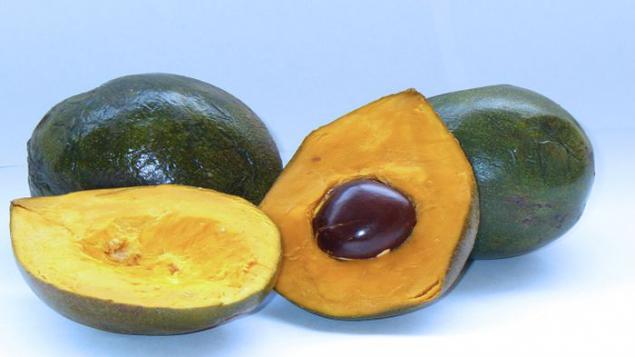
Delight improves the immune system and fills the body with vitamins, minerals and antioxidants. Some use Delight in cakes, ice cream.
5. Spanish plum.
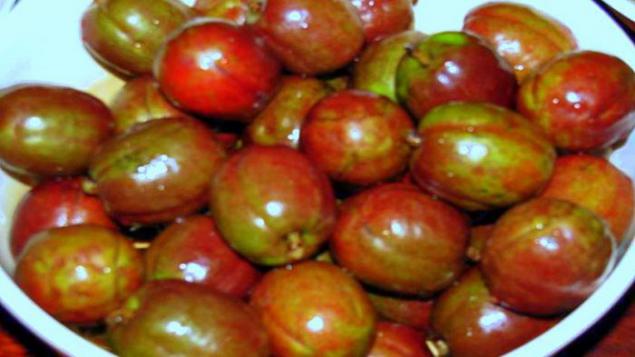
Spanish plum is used as a diuretic and antispasmodic. Its juice is used as an antiseptic for disinfecting wounds and sores in the mouth. Syrup of this fruit is used to treat diarrhea and indigestion.
4. cactus, or prickly pear.
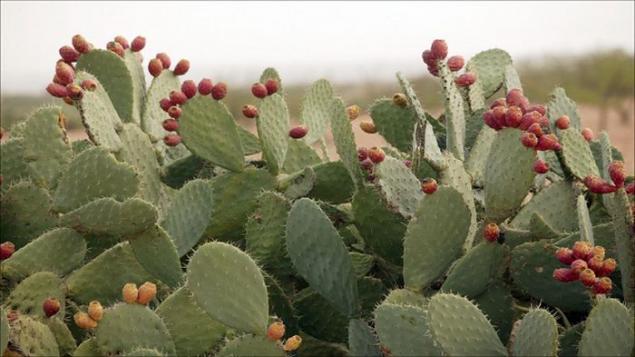
It is kind of a cactus with a sweet and brightly colored flesh. It smells like watermelon, and inside it has a lot of hard black seeds. This fruit is very useful to the body, as it contains a lot of fiber, vitamin C and potassium. Ripe fruit can be stored in the refrigerator for more than a week.
3. Tamarillo.
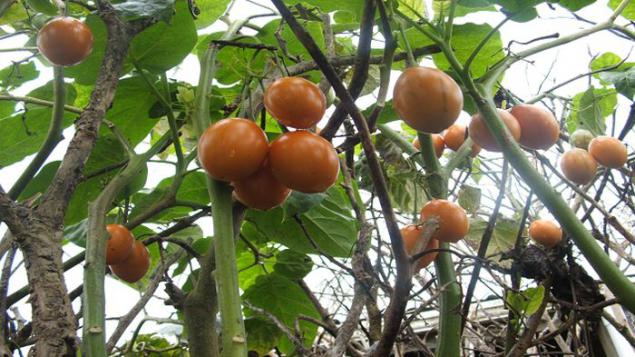
Tamarillo - a good source of Vitamin C and can be used as a raw in salads. Fruit egg-shaped, 4-10 cm long. The color can vary from yellow and orange to red and even purple. At some fruits have band. Red tamarillo more acidic, yellow sweeter. This fruit is rich in vitamins, and at the same time low in calories.
2. Feijoa.
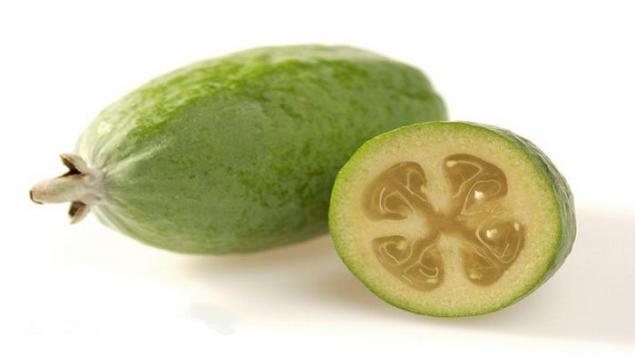
This is an oval fruit with thin green skin and soft grained flesh, source of vitamin C. It also contains a small amount of vitamin B, and very tasty cooked form. This fruit is very fragrant and can be stored for several days at room temperature. It can only have a mellow, as underripe fruit bitter taste.
1.Ayva.
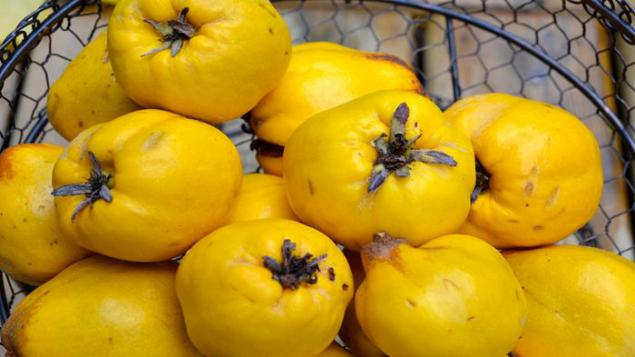
Source of vitamin C, which, however, disappears when the heat treatment. When the fruit is ripe, it turns yellow. It can be stored in the refrigerator for longer storage of each fruit must be wrapped individually to prevent rot.
Take a look at some of them.
25. Fruit baobab

This fruit resembles a coconut and contains milk, twice as rich in calcium, is also rich in antioxidants, potassium, and vitamin C. It contains 6 times more, Sanchez in orange. Usually they do not sell entirely due to a very hard shell, but this fruit can be bought as smussi or in muesli bars. Earlier this fruit has been banned in the UK and the US, but now you can find it on the shelves.
24. boysenberry.

This berry - something between a blackberry and raspberry. It was the result of the experiment Rudolph Boysen, who was involved in crossing the 1920s. Berry has a very rich taste, and she has a lot of fans.
23. The Breadfruit.

Usually you can find it in the Pacific Islands. It is eaten cooked separately or together with other fruits. Also, it can be mixed with coconut milk, butter and meat. It has a lot of carbohydrates, and it is 70% water. It is also very rich in vitamin C, thiamine and potassium.
22. cherimoya.

For the first time this fruit presented in 1871 in California, and then it was brought to Italy and Portugal. The taste of the fruit can vary: some species are similar in taste to pineapple, pear or other on the apple. When the peel turns brown, it can not be there. It contains 15% sugar and vitamin C. However, there can not be damaged or seeds, as they are poisonous, and the digestion may lead to paralysis.
21. Fruit trees aguahe.

This exotic fruit is covered with red skinned to be cleaned. Grows near swamps and other wet areas of South America. This is a potential source of vitamin A, C, and can also be used to treat burns. Some make him an excellent wine.
20. Monstera delitsioza

The flesh of this fruit is like a pineapple. Carefully peel off. Fruit takes a year to complete maturation. If it is not ripe, it can be dangerous to humans. This fruit is native to Central America, and looks like an ear of corn, although it is a fruit. Tastes like banana and pineapple together and contains a lot of vitamin C. It is also a source of energy and vitality.
19. cupuaçu.

Grows in the Amazon. The flesh of this fruit is used for desserts, as to taste it resembles chocolate pineapple, as it is quite fragrant fruit. Many believe it superfruits because it contains vitamins B1, B2, B3, fatty and amino acids, nine antioxidants, calcium, selenium, vitamin A and C.
18. Pepino.

It's a cross between a pear and watermelon. Although it is a sweet fruit, the yoke is often compared with tomatoes or eggplant. Is home to South Africa, and even export to New Zealand and Turkey. Very useful in patients with diabetes, heart problems and blood pressure. Regular consumption of this fruit will increase body tone.
17. Aki.

This fruit contains many fatty acids such as stearic, palmitic, linoleic, including oil Omega 6. It is a good substitute for oil omega-6, which is found in fish. It contains no saturated fats or cholesterol. The fruit is also rich in protein, complex carbohydrates, vitamins B and C, zinc, potassium, calcium and fiber.
16. physalis.

It is often considered to be the same species as the tomatoes because of the light acid taste. It can be eaten raw or in a dessert, salad dressings, jams, jellies, and it is made into dried fruit.
15. Jabuticaba.

This fruit grows in South America and is similar to grapes. The taste it also reminds grapes, although depending on the maturity of the taste change. The best taste it gets on the ninth day after his thwarted.
14. African prickly cucumber.

In the United States it is called the fruit "fish-hedgehog". Onzeleny inside, outside - yellow. On the palate, it resembles something between a cucumber and zucchini and contains vitamin C and fiber. It can have any degree of ripeness. Also from mature cucumbers make juice.
13. Magic fruit.

Magical fruit is known for its ability to make sweet sour dishes. This is due to the substance Miraculin. This is his feature makes it very useful for people who want to lose weight, or for those who are undergoing chemotherapy, as this substance is also able to withstand a metallic taste, side effects of chemotherapy.
12. Lansium parasiticum.

This ball-shaped fruit grows in South Asia, Bhutan and India, as it is found in Hawaii. Lansium parasiticum unripe sour taste when it ripens, it becomes sweet, something like a bitter-sweet grapefruit. This exotic fruit contains protein, carbohydrates, fiber, calcium, vitamin A, thiamin, riboflavin and ascorbic acid.
11. Rambutan.

This strannovyglyadyaschy fruit outside like a fluffy strawberry, and inside looks like a lychee. Rambutan grows in the Philippines and has lots of nutrients.
10. Noni.

There was a time when noni was a huge demand in the market, as this fruit is very good for health. In countries such as the USA, Australia, the Philippines and other countries in Southeast Asia, this fruit is always in demand. It contains klechtatku, vitamin A, iron, calcium, and is one of the staple food of the local people. It can be stewed, eat raw, squeeze the juice, or use as a medicine.
9. Dragon Fruit.

Dragon Fruit growing throughout Asia, North and South America. It strengthens the immune system and aids in digestion. It is also important that it reduces the level of glucose in the blood, which can help people with diabetes.
8. Javanese drain.

Javanese drain - a very popular fruit in the lower part of the Philippines. Tastes like something sweet, a little sour, and colors purple tongue. Used in Ayurveda for the control of diabetes, and in Chinese medicine to improve digestion.
7. Sursop.

This fruit grows on broadleaf evergreen tree, native to Mexico, Cuba, Central America, the Caribbean and northern South America. It is rich in vitamins B, B2 and C. It is said that sursop can cure many diseases, even such as cancer, but it is quite a controversial statement, because scientists have not been able to prove its viability.
6. Delight.

Delight improves the immune system and fills the body with vitamins, minerals and antioxidants. Some use Delight in cakes, ice cream.
5. Spanish plum.

Spanish plum is used as a diuretic and antispasmodic. Its juice is used as an antiseptic for disinfecting wounds and sores in the mouth. Syrup of this fruit is used to treat diarrhea and indigestion.
4. cactus, or prickly pear.

It is kind of a cactus with a sweet and brightly colored flesh. It smells like watermelon, and inside it has a lot of hard black seeds. This fruit is very useful to the body, as it contains a lot of fiber, vitamin C and potassium. Ripe fruit can be stored in the refrigerator for more than a week.
3. Tamarillo.

Tamarillo - a good source of Vitamin C and can be used as a raw in salads. Fruit egg-shaped, 4-10 cm long. The color can vary from yellow and orange to red and even purple. At some fruits have band. Red tamarillo more acidic, yellow sweeter. This fruit is rich in vitamins, and at the same time low in calories.
2. Feijoa.

This is an oval fruit with thin green skin and soft grained flesh, source of vitamin C. It also contains a small amount of vitamin B, and very tasty cooked form. This fruit is very fragrant and can be stored for several days at room temperature. It can only have a mellow, as underripe fruit bitter taste.
1.Ayva.

Source of vitamin C, which, however, disappears when the heat treatment. When the fruit is ripe, it turns yellow. It can be stored in the refrigerator for longer storage of each fruit must be wrapped individually to prevent rot.
Gelatin tuning an old Mercedes
Wife carrying championship takes place in a three-day festival in Sonkajärvi

